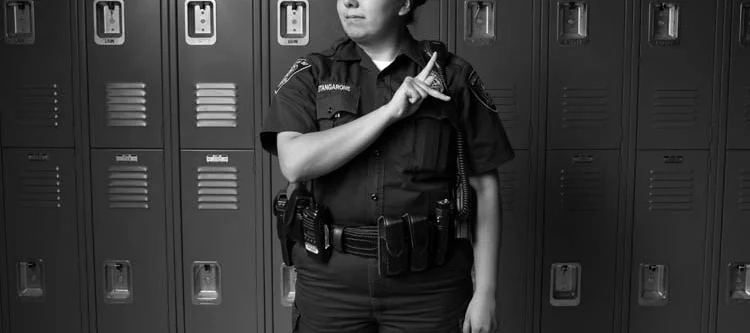First Responders and Deaf Communities
custom trainings for deaf-friendly law enforcement
CC Group's always-custom trainings are built by Law Enforcement for Law Enforcement, in partnership with the Deaf community. In industry-leading strides toward bridging the communication and cultural gaps between distinguished communities, CC Group's nationally-renowned team delivers forward-thinking education
innovation to police, fire, medics, and other public services.
“We all found (the training) to be very enlightening and interesting. The presenters were personable, knowledgeable, and engaged well with our first responders. They gave information and insight into a topic which rarely surfaces in the day-to-day operations of the police department...”
Curriculum Examples:
Deaf culture meets Officer safety
Internationally Effective Cross-Communication
American Sign Language (ASL) for Emergencies
trusted remote interpreting
(vri and opi)
Video Remote Interpreting (VRI) is a state-of-the-art, cost-conservative communication technology built to effectively communicate with the Deaf, Hard-of-Hearing, and those using a visual language
on-demand 24/7/365.
Over the Phone Interpreting (OPI) is an innovative service backed by the convenience of audio technology to deliver reliable Spanish, Vietnamese, and +150 other spoken language interpretation to your fingertips,
on-demand 24/7/365.
**All of CC Group's Remote Services are held to the highest quality service guarantee. Our strong nationwide network of interpreters are screened, qualified, and certified **
Not sure whether
remote or on-site services are right for you?
count on our expert consultants.
Compliance with the ADA and local measures
Bridging the Gap Between ESL Citizens and Locals
Practical application of linguistics
specialized on-site emergency interpreting
CC Group's world-class team of language professionals are highly trained and prepared for the high-stress,
fast-paced, intensity of the law enforcement and public service industry. From intake or arrest, during interview or interrogation, through trial and beyond, count on the support of an on-site specialist in circumstances such as...
Complex dialogue exchange, such as an interrogation or interviews with detectives, an attorney, etc.
Communications that are of a sensitive or emotional nature (i.e. sexual assault interviews)
Young children and those who have underdeveloped or non-traditional language skills
High interaction, such as multiple participants, conflicting ideals, or less structured turn-taking
Individuals with a secondary communication challenge (i.e. low vision) or mental illness
(i.e. Schizophrenia) that impedes their ability to effectively utilize remote technology



